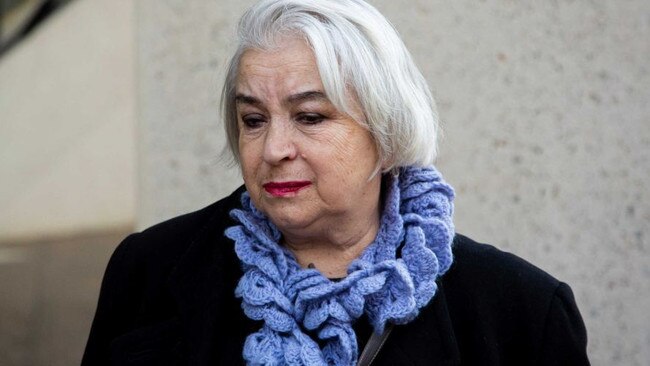High Court Michaela Banerji ruling goes ‘too far’ on free speech: expert
A constitutional expert has questioned the ruling after a public servant who criticised policy anonymously on social media was sacked.

The High Court has upheld a decision to sack a public servant for criticising government immigration policy from an anonymous social media account, raising legal concerns over how to balance the maintenance of an apolitical bureaucracy with public servants’ right to free speech.
Constitutional law expert Anne Twomey today suggested the High Court may have gone “a bit too far” after it found that Michaela Banerji — who was fired in 2013 from the Department of Immigration and Border Protection — had breached the public service code of conduct.
Using the name “LaLegale”, she posted thousands of tweets concerning topics including offshore processing and Australia’s international obligations to refugees. All but one were sent from outside the office and on her own mobile phone, and none disclosed confidential information.
Federal Attorney-General Christian Porter described the decision of the full bench of the High Court as “welcome” and said the government would carefully consider all of its terms in the near future.

“It is worth noting that the substance of the decision effectively supports the status quo regarding the expectations on commonwealth public servants to not compromise the important independence of their departments or agencies,” he said.
Professor Twomey offered a different view: “The reality is you really should not be judging people on what they say on Twitter, but how they perform in their job. You would think there would be some capacity for people to exercise free speech to express their individual views in a manner that doesn’t really affect the impartiality of the public service.”
Former rugby union star Israel Folau has also lodged a claim with the Federal Circuit Court in Melbourne, arguing that he was unlawfully dismissed under a key part of the Fair Work Act that disallows sackings because of a person’s religion.
A probe was launched into whether Ms Banerji’s social media posts had breached the public service’s code of conduct following complaints by staff; when Ms Banerji received her termination notice in September 2013, she suffered post-traumatic stress disorder and lodged a workers compensation claim.
The High Court today found that an Administrative Appeals Tribunal ruling in her favour had erred in its interpretation of public service rules.
Ms Banerji expressed her disappointment with the ruling.
“The only advantage of this case ... was to affirm the role of this freedom of speech for public servants and we’ve failed,” she said.
While Professor Twomey said the High Court decision wasn’t groundbreaking from a legal perspective, she wasn’t sure whether it had “grappled terribly well” with the distinctions involving free speech and public servant impartiality.
Leading constitutional lawyer George Williams echoed her concerns. He said the ruling wasn’t surprising but showed that if Australians were serious about free speech, stronger protections were needed.
“Recognising people have a right to freedom of speech would be a start,” he said.




To join the conversation, please log in. Don't have an account? Register
Join the conversation, you are commenting as Logout